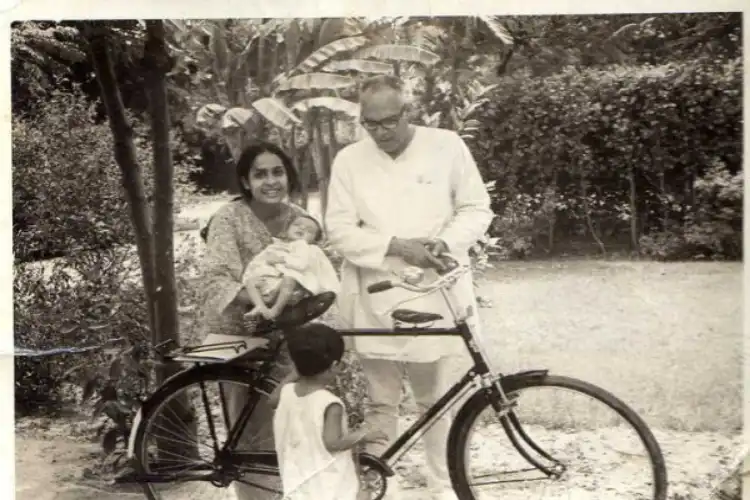.webp)
Saquib Salim
Decades ago there was a Collector (ICS officer) in India, who realized that while he could afford a life a comfortable life, people living around were reeling in abject poverty. His job was to keep these poor under check. He understood that the government policies were behind tha rampant malnutrition. He quit his job and started living among poor people working as a daily wager.
This is no fiction but a real story.
Akhtar Hameed Khan of Agra was an ICS (Indian Civil Services) officer who joined the services in 1936. It was a dream job and way to a lavish lifestyle. Very few left this coveted job and those who did mostly joined politics.
Just before the World War II broke out in 1939, Akhtar was posted in Bengal and he married Hameedah Begum, daughter of Allama Mashriqi, a freedom fighter who formed a militia to fight the British. The British policies during the War resulted in a famine that Akhtar called, “one of the greatest man-made famines in Indian History”. Poverty was killing Indians, especially Bengalis. Akhtar recalls in his autobiography that the British Government would order him to seize the boats and carts carrying food to be sent for the army units fighting the War. He realised that he was becoming a tool to kill his own people by manufacturing a famine. The myth that ICS would make him a powerful man was a sham. He quit.
Akhtar writes, “I have also become one of the lords of sorts after joining the ICS. This was a tribe of masters. I experienced the flavours of power and authority…… When the poor prostrated in submission in front of me, instead of being happy I felt ashamed. Especially at the times of famine, witnessing the poverty of my people would send me into a depression and maintaining the elitism of an ICS was not possible for my soul.” The realisation was clear, “if I did not escape while I was young and vigorous, I will forever remain in the trap, and terminate as a bureaucratic big wig."
 Akhtar Hameed Khan with his daughter and grandchildren
Akhtar Hameed Khan with his daughter and grandchildren
Akhtar recalls, "I had a profound personal concern; I wanted to live a life free from fear and anxiety, a calm and serene life, without turmoil and conflict. ... when I followed the advice of old Sufis and sages, and tried to curb my greed, my pride and aggression, fears, anxieties and conflict diminished."
Sufism brought him closer to the people. He went to Aligarh and started working as a labourer in the local lock industry. He wanted to experience the problems of the masses. Like a Sufi, he wanted to went through the sufferings to make penance. Two years later he felt that the soul was cleansed enough and, he joined Jamia Millia Islamia as a teacher.
Akhtar believed that anger, selfishness and materialism were making us lag. An advocate of Hindu-Muslim unity, he believed that the hate being taught in schools was poisonous. He wrote, “Since childhood I have been fed with my superior tribal identity. I was told that I should be proud of the destruction caused by Turk soldiers of Mahmud’s Army during their victory marches. But, at the same time I should be agitated at the destruction of the Balkans. I should laugh at the destruction of Vijay Nagar Empire by Bahmani but weep at the defeat of Srirangapattanam by the English Army.”
He admired Emperor Ashoka giving up violence after witnessing death and destruction of war. No wonder, Akhtar gave up his lucrative job to serve his people. Akhtar, an occasional poet, once summed up the ideal of his life as:
“Hazar shehar bassaye hein badshahon na
Ab aik shehar ghareebon ko bhee basanay dou!”
(Thousands of cities have been built by the Kings ….Let us allow the poor to at least populate one!)
